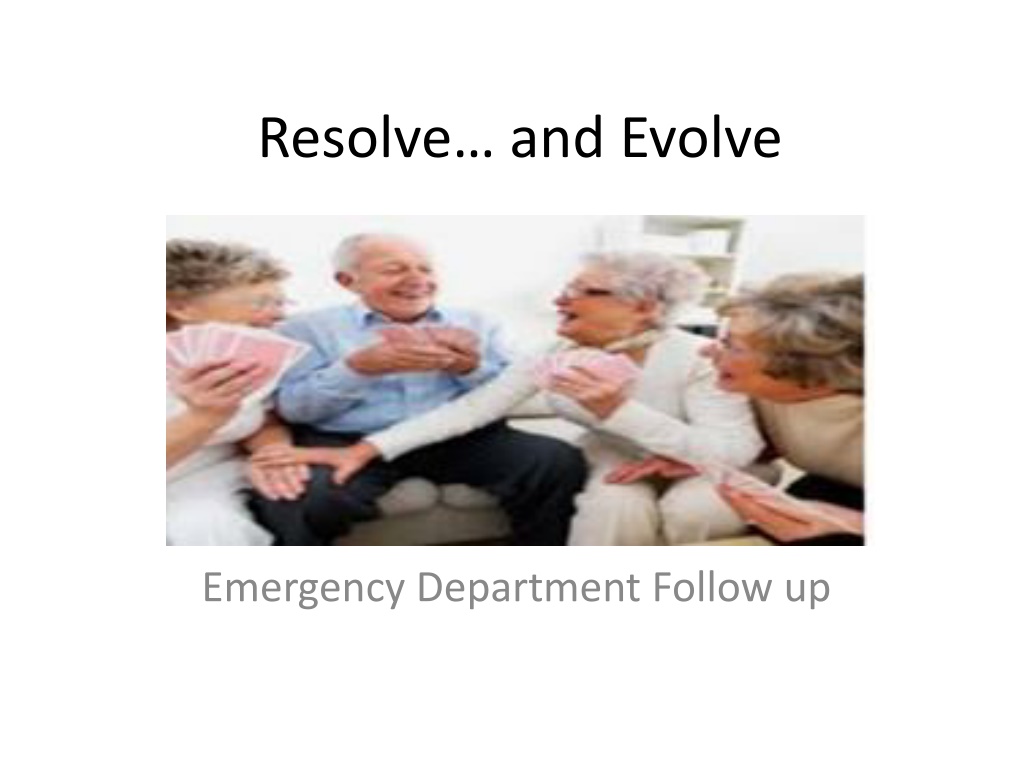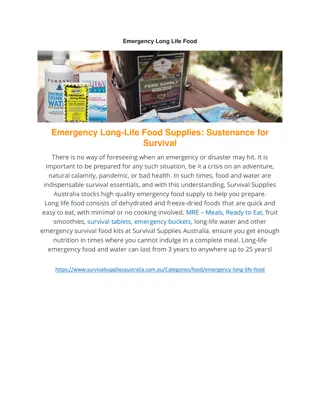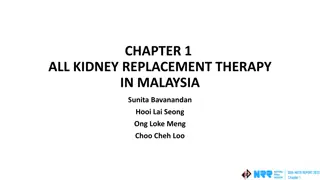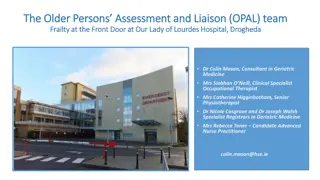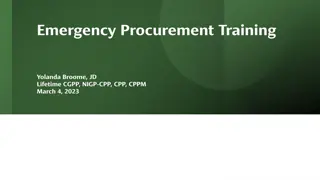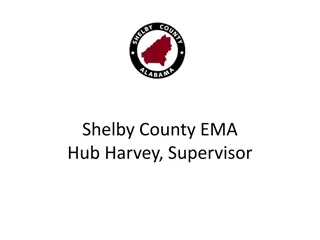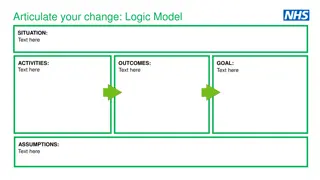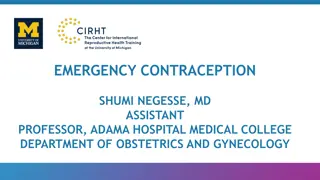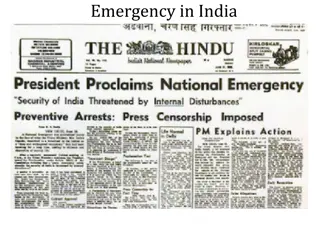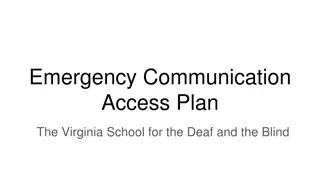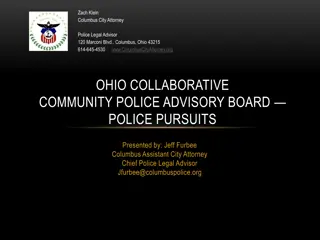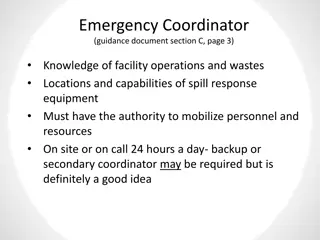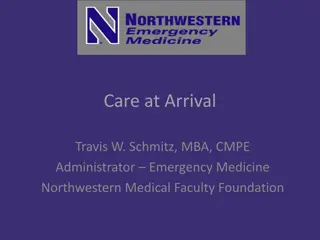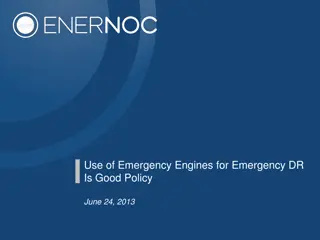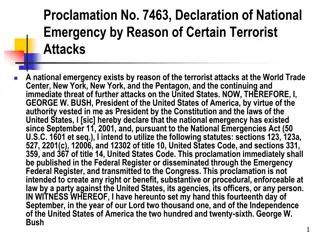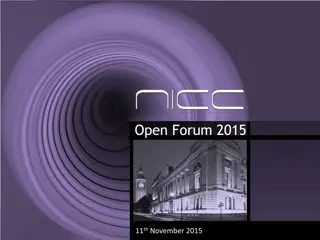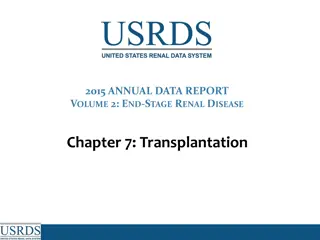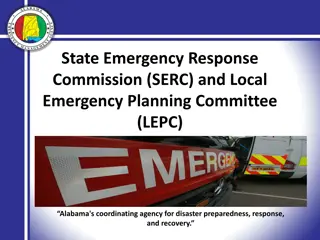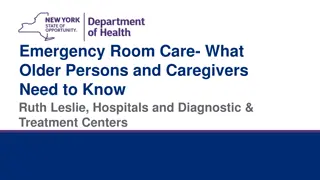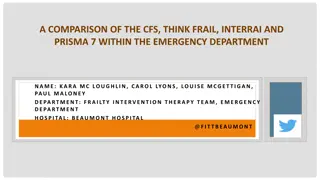Enhancing Emergency Department Follow-up for Frail Patients
Frail patients, especially those over 65, can benefit from proactive follow-up services after visiting the Emergency Department. By focusing on frailty, identifying warning signs, and engaging staff from Intermediate Care, timely interventions, advice, and referrals can be provided to prevent adverse outcomes and improve patient outcomes, especially during the COVID-19 period.
Download Presentation

Please find below an Image/Link to download the presentation.
The content on the website is provided AS IS for your information and personal use only. It may not be sold, licensed, or shared on other websites without obtaining consent from the author. Download presentation by click this link. If you encounter any issues during the download, it is possible that the publisher has removed the file from their server.
E N D
Presentation Transcript
Resolve and Evolve Emergency Department Follow up
Focus on Frailty Definition- Frailty is a condition characterised by a loss of biological reserves, failure of physiological mechanisms and consequent increased risk of experiencing a range of adverse outcomes, including hospitalisation, longer length of inpatient stay, and delirium. Silver Book II: Frailty (BGS)
ED Follow up - Rationale Initial COVID-19 surge - recognised that older, frail patients who attended ED where the decision was not to admit, may have needs for follow up services and it would be beneficial to link with these patients. All patients over the age of 65 could be followed up with a telephone call by a therapist from Intermediate Care to ensure they were not struggling and provide them with appropriate advice and support. If an onward referral to another service was deemed necessary, this could be initiated immediately to the appropriate service The need for early intervention, advice and referral is vital in the management of Frailty and can not be overlooked in the time of COVID-19.
Who can follow up? Intermediate Care was operational through COVID to help ensure timely discharge from hospital and prevent unnecessary admissions. There were a number of staff however that were shielding or unable to take part in face to face visits who were very keen to help provide a service in any way possible. These staff agreed to provide a follow up service for all patients over the age of 65 that attended ED, were not admitted and not actively open to another service.
ICS In/Exclusion Criteria Inclusion criteria Falls* (presentation to ED or history of ) Continence issues* Polypharmacy - 5 meds or more* Cognitive disorder* Reduced mobility / ability to cope UTI Fractures Significant musculoskeletal injuries Problems impacting transfers General concerns from triage info Social isolation risk* (from any of above or clinical reasoning) Exclusion Criteria Minor injuries or abrasions Permanent Nursing/Residential home resident Clinical Reasoning In/Exclusion criteria should not be used rigidly and clinical reasoning should apply. * Frailty warning signs
ED Follow ups Contacted April 20 - March 21 Advice / Reassurance / Exercises & Offer of A&I details Advice / Reassurance / Exercises & Referral on 3982 3275 575
Feedback in time of fear & anxiety around service provision This call is like a divine intervention. It has been an answer to my prayers. You are providing an excellent service You are angels I am so grateful for the follow up and reassurance. You have gone above & beyond
At a time of loneliness and isolation You have brightened my day. I haven t laughed in a long time. It is nice to know someone has taken an interest. Amazing service This is a very lonely road & I am so grateful for your call. It is good to know we are not forgotten
Moving Forward GP Pilot looking at earlier identification Learning from phone calls to not only ask about physical problems but have the discussion around loneliness, support networks etc Important to not get caught up in just the questions but to listen to the service user. Subjective feelings and concerns are as important as objective measures here. Important to know and understand all interfaces and referral options to increase timely access.
Who should do. Large element of physical, medical and biopsychosocial issue can be identified From experiences gained Physiotherapists very good at sitting in the middle of this Clinically reason to a high standard Excellent communication skills from Physiotherapists and AHP colleagues knowing when to listen and when to speak
What next GP pilot moving forward with aim to roll out to other GPs ED follow up on hold due to staffing, not commissioned but would be great to see stood up again or evolve to meet current climate Everything is very fluid at the minute, but the big thing we can take from all of this is that from the start of the pandemic, right through the most difficult time of our careers and coming out the other side, our Physiotherapists have not only shown resilience and strength in abundance but also flexibility, adaptability and a desire to ensure service users where always supported.
